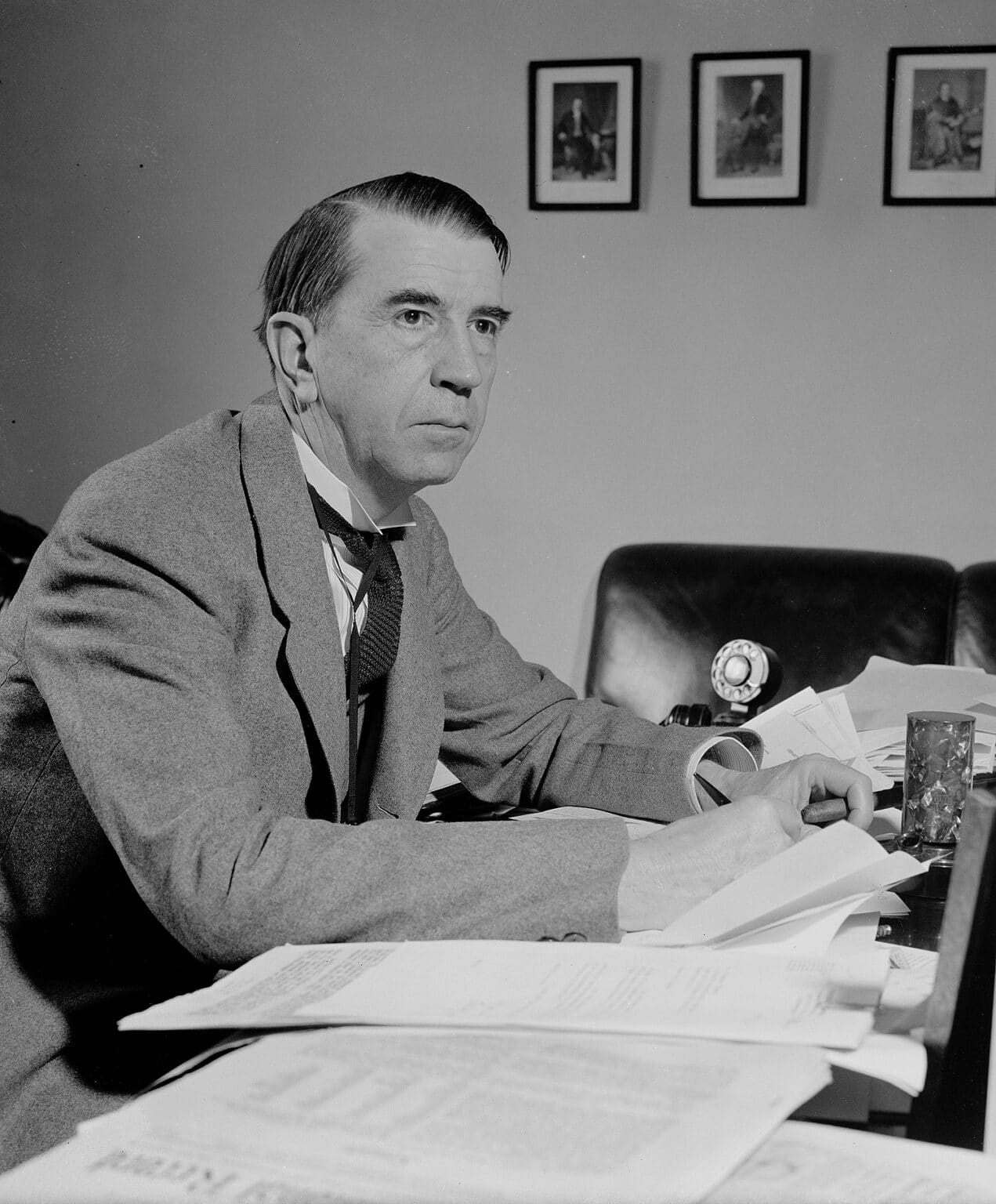RESOURCES
PEOPLE
Howard Worth Smith
1883-1976
Howard Smith was a prominent Democratic U.S. Representative from Virginia, serving from 1931 to 1967. Born in Broad Run, Fauquier County, Virginia, he pursued law at the University of Virginia and began his political career as a local judge before entering Congress.
Smith became a central figure in the conservative coalition within Congress, particularly known for his role as chairman of the powerful House Rules Committee from 1955 to 1967. In this position, he wielded significant influence over which legislation reached the House floor, often using this power to block or delay progressive bills, especially those related to civil rights.
A staunch segregationist, Smith was instrumental in the Massive Resistance movement, which aimed to prevent the desegregation of public schools following the Supreme Court’s 1954 decision in Brown v. Board of Education. He was a signatory of the 1956 Southern M
anifesto, a document that condemned the Court’s ruling and encouraged states to resist its implementation.
Despite his opposition to civil rights legislation, Smith played a paradoxical role in the Civil Rights Act of 1964 by introducing an amendment to include “sex” as a protected category against employment discrimination. While some viewed this move as an attempt to derail the bill, others noted his longstanding support for the Equal Rights Amendment and connections with women’s rights activists like Alice Paul. Regardless of his intentions, the amendment passed and became a significant milestone for gender equality in the workplace.
Smith’s unwavering commitment to segregation and his obstruction of civil rights legislation eventually led to his political downfall. In 1966, he was defeated in the Democratic primary, marking the end of his congressional career.
